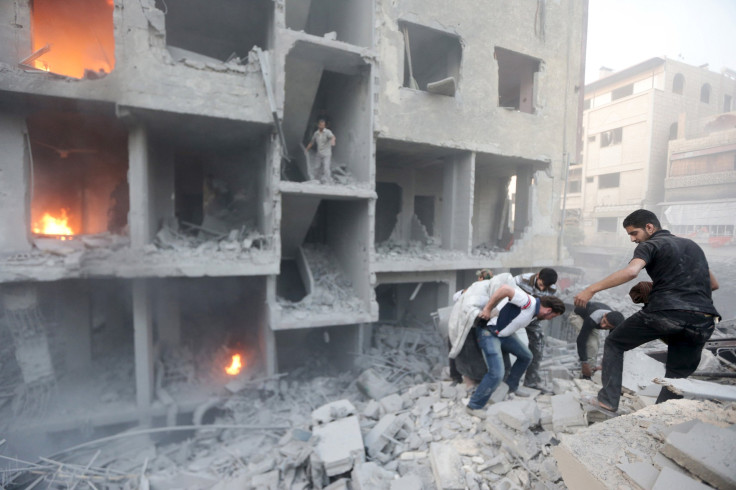Combating The Islamic State: US Ends Anti-ISIS Syrian Rebel Training Program

The White House has ended a program to train Syrian rebels to fight the Islamic State group, also known as ISIS, officials said Friday, the New York Times reported. The news emerged three weeks after a senior U.S. commander said that only "four or five" U.S.-trained Syrian rebels remained fighting the Islamic State group, out of a group of 54 graduates from a U.S. program.
A senior Pentagon official shared the news on condition of anonymity, but defense officials were expected to announce it publicly Friday, the New York Times reported. Instead of recruiting and training Syrian rebels in Jordan, Qatar and other Middle Eastern countries, a training center -- albeit a much smaller one -- would be established in Turkey. But the training could restart "if conditions dictate, opportunities arise," a senior White House official told the Times.
Claims that the White House would suspend its $500 million Syrian rebel program emerged at the end of September but remained unconfirmed until now. Col. Steve Warren, a spokesman for the Pentagon, told Foreign Policy at the time that part of the program would be suspended but that the U.S. would "continue with other aspects of the program, including recruiting, training and supporting deployed personnel" while it re-examined the program.
The seeds of the program were planted in June 2014, when the White House proposed training and arming so-called moderate Syrian rebels starting in 2015. The Pentagon said in January that it hoped to train 5,400 fighters that year to fight ISIS, and in May, Defense Secretary Ashton Carton announced that the U.S. had begun training nearly 90 "highly vetted individuals," in what he hoped would be "an ever-expanding program, once it proves itself, which I think it will."
But by July 2015, reports were emerging that fighters recruited, vetted and trained in the program were deserting or being abducted by rival rebel groups, like the al Qaeda-affiliated Nusra Front, that are not supported by the U.S. They were not making headway in the fight against the Islamic State group.
Not only did the Pentagon struggle to find fighters that met its stringent requirements -- meant to to keep out extremists -- but once recruits joined the program, it also seemed unable to retain them. More than half were expelled or quit, the New York Times reported.
Officials had described the training program as merely one component of a broader approach to fight ISIS. The U.S. is also leading coalitions carrying out airstrikes against the group in Iraq and Syria, even as it maintains that it hopes to see a political solution to the war in Syria.
© Copyright IBTimes 2025. All rights reserved.






















